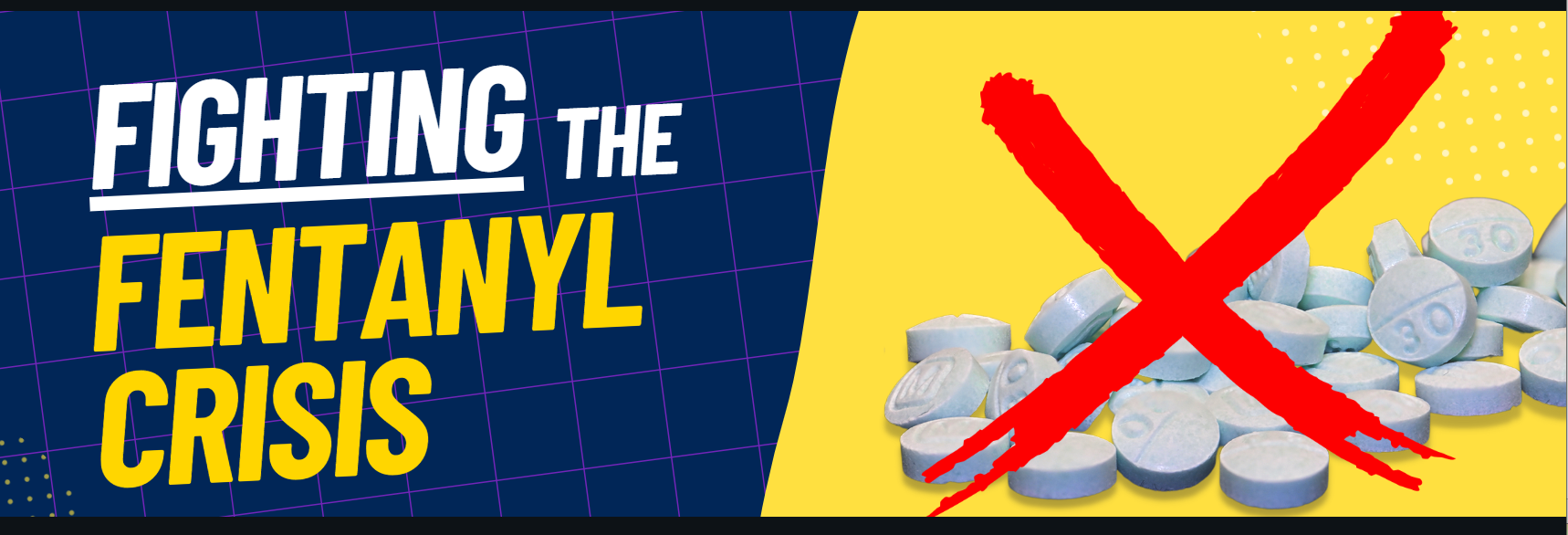SB 44 (Umberg/ Ochoa Bogh) Alexandra’s Law (Joint Author): Would require an individual convicted of distributing certain opiates and narcotics, including fentanyl, to read and sign a written advisory warning of the dangers such actions pose to human life.
“Fentanyl-related deaths have swept my district and state recently. As a mother, it’s heartbreaking to listen to families describe the tragic deaths of their loved ones. Meeting with Alexandra’s family and learning about her story compelled me to take action immediately and joint authored SB 44 with Senator Tom Umberg. We must join together, fight against these senseless deaths, and hold the individuals who knowingly distribute fentanyl accountable for the irreparable harm they cause.”
Media

Fentanyl Bills
SB 10 (Cortese) Pupil health: opioid overdose prevention and treatment. Upon appropriation, would establish the State Working Group on Fentanyl Education in Schools, for the purpose of promoting public education, awareness, and prevention of fentanyl overdoses, with the outreach aimed at staff and pupils in schools. This bill would state the intent of the Legislature that a school use alternatives to a referral of a pupil to a law enforcement agency in response to an incident involving the pupil’s misuse of an opioid, to the extent not in conflict with any other law requiring that referral.
AB 19 (Patterson) Pupil health: opioid antagonists (Coauthor). Would require each individual public school operated by a school district, county office of education, or charter school to maintain at least two doses of naloxone hydrochloride or another opioid antagonist.
SB 19 (Seyarto) Anti-Fentanyl Abuse Task Force (Coauthor). Would, upon appropriation, establish the Anti-Fentanyl Abuse Task Force to undertake various duties relating to fentanyl abuse including, among others, collecting and organizing data on the nature and extent of fentanyl abuse in California and evaluating approaches to increase public awareness of fentanyl abuse.
AB 24 (Haney) Emergency response: opioid antagonist kits. Would require bars, gas stations, public libraries, or hotels in a county that is experiencing an opioid overdose crisis, as defined, to acquire and post an opioid antagonist kit, which includes an instructional poster and opioid antagonist nasal spray, in areas that are readily accessible only by employees (e.g., breakroom). Upon appropriation by the Legislature, the bill would require CDPH to provide opioid antagonist kits free of charge and to create the opioid antagonist poster with easy-to-understand instructions and graphics on how to administer them. The bill would make a violation of these provisions a misdemeanor punishable by a fine of not more than $1,000, by imprisonment in jail for 6 months, or both.
AB 33 (Bains) Fentanyl Task Force. Would state the intent of the Legislature to enact legislation relating to a fentanyl task force, in order to identify and address the fentanyl crisis as part of the opioid epidemic in this state.
SCR 39 (Umberg) National Fentanyl Awareness Day (Unofficial Coauthor). Designates May 9, 2023, as National Fentanyl Awareness Day.
SB 62 (Nguyen) Controlled substances: fentanyl (Unofficial Coauthor). Would impose an additional term upon, and authorize a fine against, a defendant who violates those laws with respect to a substance containing fentanyl dependent upon the weight or volume of the seized substance.
SB 67 (Seyarto) Controlled substances: overdose reporting (Unofficial Coauthor). Would require an emergency medical services provider who treats and releases or transports an individual to a medical facility who is experiencing a suspected or an actual overdose to report the incident to the Emergency Medical Services Authority. The bill requires the authority to report the data gathered pursuant to the bill to the Overdose Detection Mapping Application Program managed by the Washington/Baltimore High Intensity Drug Trafficking Area program.
SB 226 (Alvarado-Gil) Controlled substances: armed possession: fentanyl (Coauthor). Would prohibit the possession of fentanyl while armed with a loaded and operable firearm.
SB 234 (Portantino) Opioid antagonists: schools, college campuses, stadiums, concert venues. Would require schools, college campuses, stadiums, and concert venues to maintain unexpired doses of naloxone hydrochloride or any other opioid antagonist on its premises at all times, and to ensure that at least 2 employees are aware of the location of the naloxone hydrochloride or other opioid antagonist.
SB 237 (Grove) Controlled substances: fentanyl (Coauthor). Would essentially double the punishment for the possession, selling, transporting, or trafficking of fentanyl.
AB 367 (Maienschein) Controlled substances: enhancements. Would state that a person inflicts “great bodily injury” when they sell, furnish, administer, or give away a controlled substance and the person to whom the substance was provided suffers a significant or substantial physical injury from using the substance, thus allowing the provider to be subject to additional enhancements.
SB 325 (Grove) Controlled substances: fentanyl. Would impose an additional punishment of 3, 4, or 5 years to a person who is convicted of specified crimes involving fentanyl or a fentanyl analog that was designed, shaped, colored, advertised, or packaged in such a way as to resemble food or candy.
AB 461 (Ramos) Student safety: fentanyl test strips. Would require each community college district and California State University to provide information about the use and location of fentanyl test strips as part of established campus orientations and to notify students of the presence and location of fentanyl test strips. The bill would require the above to require that each campus health center stock and distribute fentanyl test strips, as specified.
AB 701 (Villapudua) Controlled substances: fentanyl. Would impose that additional term upon, and authorize a fine against, a defendant who violates specified fentanyl laws.
AB 1058 (Jim Patterson) Controlled substances: fentanyl. Would increase the penalties for violating control substance laws if the controlled substance containing more than 28.35 grams of fentanyl or a fentanyl analog.

